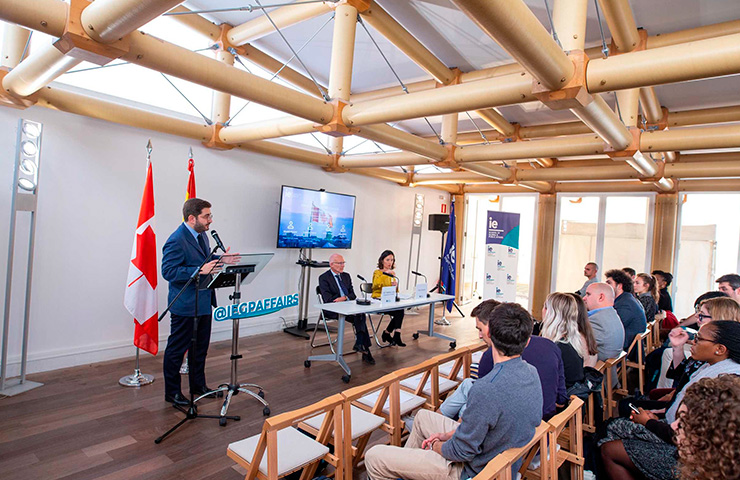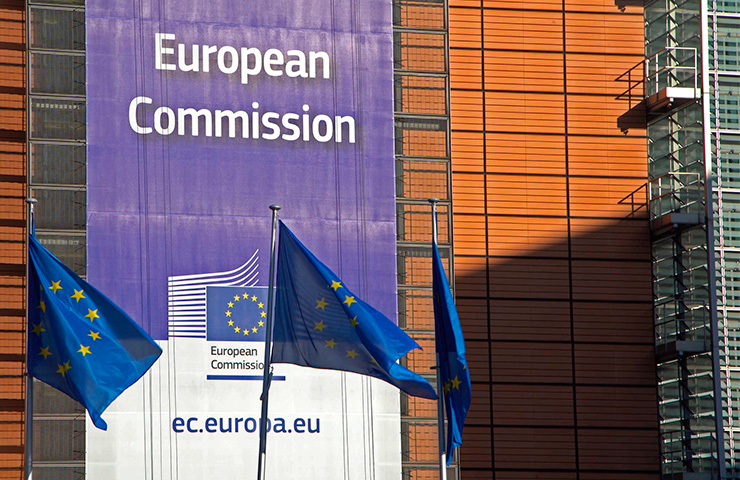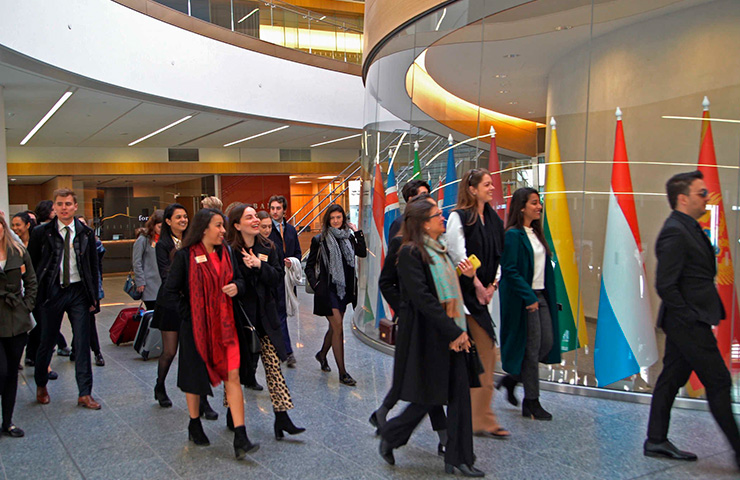You want a career in international relations. You want to travel the globe, meet new people and really make a difference. But what real jobs are out there? You’ve likely read our article on why you should study international relations. Now you’re thinking about the future. We’re here to tell you—yes, it’s a practical choice. And there’s one common feature across all careers in international relations: A global mindset.
The global mindset is a myth
Let’s revise that statement—the global mindset doesn’t exist. What the world needs is people with a human mindset. Professionals that thrive in international relations are those who care about others, sincerely. We drill that into graduates of our Master in International Relations program, which is why they work across industries at global players like UNICEF, the European Parliament, Klarna, the OAS and more.
But why will employers love you so much?

Of course, there are the skills you learn during an international relations master’s program that are highly transferable; How to present yourself through public speaking; Writing and forming persuasive arguments; Collaborating with others toward common goals. These are great skills, but they’re not the most important one. We’ll explain more at the end, but let’s examine the high-flying careers you’ll access now you’re set on a master’s in international relations.
Public affairs and politics
The skill sets that international relations students acquire are extremely useful in roles related to political science. Common jobs in this area include: working as a civil servant for the government, working in public affairs toward conflict resolution or policy development, or serving abroad as a diplomat.

Our alumni have gone straight into roles as like European Parliamentary Assistant, Research Assistant and Public Affairs Intern.
Each of these roles capitalizes on the knowledge that your international relations degree gives you regarding history and the dynamics between political groups or countries with varying interests. In addition, you’ll rely on the research skills you hone during your studies to stay up to date on current affairs.
You can also apply your skills in political analysis to work as a journalist. Since you’ll develop strong writing skills as an international relations student, you’ll be well prepared to write for the world’s top publications.
Conquer the business world with a global mindset
Studying international relations involves developing the skills to analyze a multitude of factors and the way they can influence the outcomes of a situation. This capacity for analysis is especially valuable in the business realm.
International relations students work as international bankers, marketing executives, consultants and economists.

The ability to assess factors at play and to forecast are key to success in these roles. IE University’s partnership with the Organization for Economic Co-operation and Development (OECD) ensures that students are surrounded by opportunities to learn how to apply these skills in roles involving economic decision-making.
What’s more, students can make important connections while they study, with nearly 200 recruiting partners having visited our campus in the 2019-2020 academic year—including Uber, Facebook, Nike, Goldman Sachs and S&P Global.
Social development and international aid
Another common career path for international relations students is social development or roles in international aid organizations. Non-governmental organizations (NGOs) as well as government-funded organizations often recruit international relations grads because of their skills in problem-solving, communication and intercultural awareness and cooperation.
Prestigious NGOs such as the International Committee of the Red Cross (ICRC) and Save the Children have participated in IE University’s special careers forum for international relations students, meaning that you’ll have the opportunity to start building your network with these organizations while you study.

Furthermore, individuals with an international relations background can also find work with organizations closer to home or smaller NGOs.
For example, working as a lobbyist in your local or national government will allow you to drive efforts for changes at the legislative level.
The most important skill with international relations
Thanks for staying with us. We’re sure you’re wondering about the most important skill for a career in international relations. No, it’s not having a global mindset. It’s not understanding people. It’s not even being smart enough to get the top grades. The top skill is taking actions today that impact your future. How many times have you felt inspired and then found the feeling had disappeared within a few weeks and you were no better off than before? Don’t let that happen. Fill in the form below, sign up for a couple of emails and let us explain our Master in International Relations in a little more detail. You can opt out whenever you like—but if we do our job properly, you won’t want to. The adventure starts here.
Gain a global mindset with our Master in International Relations
A Master in International Relations will set you on the path to success in a range of fields, from politics to business and far beyond.

Benjamin is the editor of Uncover IE. His writing is featured in the LAMDA Verse and Prose Anthology Vol. 19, The Primer and Moonflake Press. Benjamin provided translation for “FalseStuff: La Muerte de las Musas”, winner of Best Theatre Show at the Max Awards 2024.
Benjamin was shortlisted for the Bristol Old Vic Open Sessions 2016 and the Alpine Fellowship Writing Prize 2023.






